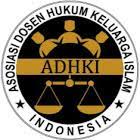Mangalehen Tuor in the Perspective of Hadith
DOI:
https://doi.org/10.63731/jhk.v1i02.10Keywords:
Tuor, Mahar, Hadith PerspectiveAbstract
Tuor is a term that comes from the Mandailing language which is also called honesty, namely marriage dowry among the Mandailing and Angkola people, where a man is obliged to give tuor to the prospective woman he will marry. However, for some people, young men who are about to marry can be an obstacle to marriage because they are unable to fulfill the requests of the woman's family due to the man's low economic condition. In the Mandailing tradition, the high and low levels of tuor are seen in terms of a woman's status, namely her education, heredity and so on. The aim of this research is to find out the implementation of tuor giving and to find out the community's views on the tradition of giving tuor and also to find out the value of the hadith contained in the tuor tradition in Mandailing customs. This type of field research is descriptive qualitative in nature, while data collection techniques are carried out by means of observation, interviews and documentation. This research can be concluded: first, in terms of history, tuor has existed since the time of the Mandailing kings. Second, the implementation of tuor begins before the wedding day. Third, the basis for the Mandailing community in giving tuor, they rely on the hadiths about dowry. The negative impact of the tuor tradition in Mandailing customs is that it can cancel the marriage, the marriage is delayed, Walimatul 'ursy is only carried out by one party, elopement can be burdensome for a man to get married. Meanwhile, the positive aspect is to avoid divorce, the responsibility of parents towards their children, and so on.
Downloads
References
Al-Syaibani, Abu Abdullah. 1419 H/1998 M. Musnad Ahmad bin Hanbal. Beirut : Alam Al-Kutub.
Dahlan, Abdul Rahman. 2010. Ushul Fiqh. Jakarta: Amzah. Departemen Agama RI, Ensiklopedi Islam di Indonesia Jakarta: CV. Anda Utama, 1993
Efendi, Satria. 2005.Ushil Fiqh.Jakarta: Kencana. Kamus Besar Bahasa Indonesia. 2008. Jakarta: PT Gramedia Pustaka Utama
Ma’luf, Louis. 1986. al-Munjid fi al-Lughah wal-A'lam. Beirut: Dar al-Masyriq.
Rahman, Abd. 2006. Fiqh Munakahat. Jakarta: Kencana
Rahman, Abd. 2006. Fiqh Munakahat. Jakarta: Kencana.
Ridwan, 2010. Skala Pengukuran Variabel-Variabel Penelitian. Bandung: Kencana
Smith,Huston. 2002. Ensiklopedi Islam Ringkas. Jakarta: PT Raja Grafindo Persada.
Syamsuddin, Sahiron. 2007. Metodologi Penelitian Living Qur’an dan Hadis. Yogyakarta: TH-Press.
Tarigan, Amir Nuruddin dan Azhari Akmal. 2006. Hukum Perdata Islam di Indonesia: Studi Kritis Perkembangan Hukum Islam dari Fikih. Jakarta: Kencana Prenada Media Group.
Tihami. 2010. Fikih Munakahat: Kajian Fikih Nikah Lengkap. Jakarta: Rajawali Press.
al-Hafidz, Kamus Ilmu Al-Qur’an, Jakarta: Amzah, 2005
Wahyu, Ramdani.2008. Ilmu Budaya Dasar. Bandung CV Pustaka Setia
Kusmidi, Hendri. (2018)-Reactualization of the Concept of Iddah in Marriage, Mizani Scientific Journal: Legal, Economic and Religious Discourse 4, no. 1.
Muhja, Zainal Abidin. (2019)-The Position of Sighat Taqliq Talaq in Islamic Law, Akta Yudisia: Borneo Tarakan University 4, no. 1.
Santoso, Dri. (2020)-The Thought of Imam Syafi'i About the Provision of Quru' in Surah Al Baqarah Verse 228 and Its Relevance, Mabahits : Journal of Family Law 4, no. 01.
Sebyar, M. H., & Fakhruddin, A. (2020). Pengambilalihan wewenang wali nasab dalam perkara wali adhal perspektif pluralisme hukum (Studi kasus pandangan hakim dan tokoh masyarakat Kabupaten Pasuruan). ADHKI: Journal of Islamic Family Law, 1(2), 73–91. https://doi.org/10.37876/adhki.v1i2.19.
Sopyan, Yayan. (2004)-Gender Bias in Divorce (A Comparative Study Between Talak and Gugat Divorce).Musawa 03, no. 02.
Syar'i, Makmun. (2015)-Reformulation of the Law of Talak Outside the Court,‖ Mazahib: Journal of Islamic Legal Thought 14, no. 01.
Waliko. (2015)-The Concept of Iddah and Ihdad for Career Women whose Husbands Die (A Ma'anil Hadith Review), Yinyang: Journal of Islamic, Gender and Child Studies 10, no. 1.
Downloads
Published
How to Cite
Issue
Section
License
Copyright (c) 2025 Jurnal Hukum Keluarga

This work is licensed under a Creative Commons Attribution-NonCommercial-ShareAlike 4.0 International License.












